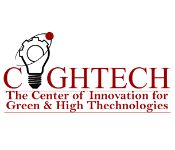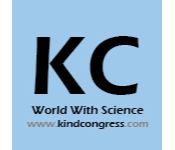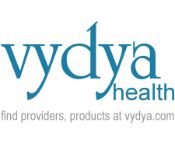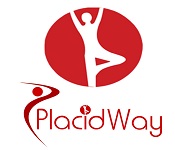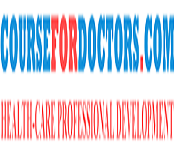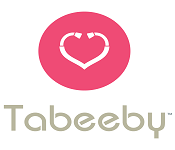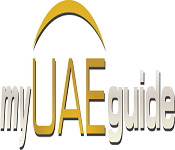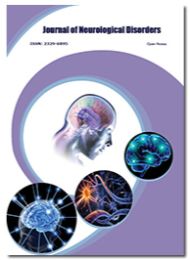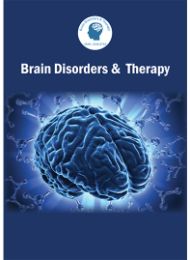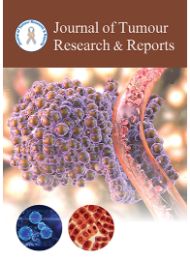Conference Series Ltd Organizes 1000+ Conferences Every Year across USA, Europe & Asia with support from 1000 more scientific societies and Publishes 700+ Open access journals which contains over 100,000 eminent personalities, reputed scientists as editorial board members.
After an effective conference of Stroke 2021, Conference Series is currently bringing “7th International Conference on Neurological Disorders and Stroke” (Stroke Global-2022) programmed to be held during March 21-22, 2022 at Basel Switzerland. The conference invites all the participants across the globe to attend and share their visions and convey current developments in the field of Neuroscience and neurology.
The session will be organized around the theme ‘Developing trends and Modern Diagnosis in stroke treatment & prevention'. We will likely convey an extraordinary program which covers the complete range of research in neurological issue and stroke and share the ethnically diverse meetings of different treatment methodology.
Stroke Global-2022 is a yearly meeting of Neuroscience organizations as well as Stroke committees to debate the future of the Neurological disorders in terms of collaboration, structures and organizational development.
2022-Highlights:
-
200+ Participation
-
5+ Keynote Speakers
-
30+ Plenary Speakers
-
2+ Exhibitors
-
14 Innovative Educational Sessions
-
B2B Meetings
Target Audience:
Business ambassadors, Industrial Frontrunners, Stroke Scientists, Neuro Oncologists, CEO's and R&D Heads from Industries, Directors, Neurologist, Neurosurgeons, Psychiatrist, Neuroscientist, Head of department, Professors and Students from Academia in the research of neurological disorders.
Exhibition:
Why exhibit?
-
Make sales
-
Debut new products
-
Profile your brand
-
Meet new business partners and suppliers
-
Develop key relationships
-
Educate healthcare, medical institutions and academia
Who you will meet?
Leaders in:
-
Neurology
-
Neurosurgery
-
Neurological Disorders
-
Neuro Degeneration
-
Cerebrovascular disorders
-
Spine & Spinal Disorders
-
Stroke
-
Brain Tumors & Neuro Oncology
-
Neuropsychiatry and Mental health
-
Neuropharmacology
Why to attend?
Stroke Global-2022 is a unique of a kind gathering to unite global recognized scholastics in the field of neuroscience and neurology, Brain specialists, general wellbeing professionals, researchers, scholastic reviewers, industry specialists, researchers to trade about best in class investigation and modernizations.
Aim of this conference is inspire new ideas for treatment that will be beneficial across the spectrum of Stroke Global-2022.
Track 1: Neurological Disorders
A neurological subject is any turmoil of the sensory system. Basic, biochemical or electrical indiscretions in the mind, spinal line or different nerves can bring about a scope of manifestations. Cases of manifestations incorporate loss of motion, muscle shortcoming, poor synchronization, and loss of sensation, seizures, perplexity, torment and adjusted levels of cognizance.
Track 2: Neuro Degeneration
Neurons are the constructing pieces of the sensory system which incorporates the cerebrum and spinal string. Neurons naturally don't imitate or displace themselves, so when they get to be clearly harmed or bite the dust they can't be displaced by the body. Neuro degeneration is the umbrella term for the active loss of structure or capacity of neurons, including demise of neurons. Numerous neurodegenerative illnesses including amyotrophic parallel sclerosis, Parkinson's, Alzheimer's, and Huntington's happen as an aftereffect of neurodegenerative procedures. Dementias are in charge of the finest weight of sickness with Alzheimer's speaking to around 60-70% of cases.
Track 3: Stroke
Stroke occurs when an artery delivering blood to the brain either suddenly becomes blocked or begins to bleed which may result in part of the brain dying or leading to a sudden impairment that can disturb a range of activities such as speaking, movement, thinking and communication.
Track 4: Spine & Spinal Disorders
This Session will include the Neurospinal Disorders finding and therapeutics for patients experiencing all sicknesses of the spine and fringe nerves. For exact analyses and expanded security amid restorative methodology, pros utilize the most excellent procedures accessible for spinal imaging, interventional neuroradiology, electro-physiological testing, and surgery.
Track 5: Stroke and its Management
A stroke is a restorative crisis. Strokes occur when blood stream to your mind stops. Inside minutes, cerebrum cells twitch to kick the bucket. There are two sorts of stroke. The more normal kind, called ischemic stroke, is created by a blood coagulation that squares or supplements a vein in the cerebrum. The other kind, called hemorrhagic stroke, is got on by a vein that breaks and seeps into the cerebrum.
Track 6: Brain Tumors & Neuro Oncology
Needed cerebrum tumors can be either harmful (contain growth cells) or considerate (don't contain disease cells). An essential mind tumor is a tumor which twitches in the cerebrum. In the event that a critical tumor which begins somewhere else in the body sends cells which wind up developing in the cerebrum, such tumors are then called optional or metastatic mind tumors. This talk is centered round essential cerebrum tumors. Mind tumors can happen at any age. The correct object for cerebrum tumors is not clear.
Track 7: Multiple Sclerosis
Multiple sclerosis influences the cerebrum and spinal string. Early MS manifestations incorporate shortcoming, shivering, deadness, and obscured vision. Different signs are muscle solidness, thinking issues, and urinary issues. Treatment can calm MS side effects and postpone ailment movement. The reason for MS is thought to be exchange of hereditary and natural components, including scope as well as presentation to daylight and vitamin D levels. Impacts the age when side effects begin.
Track 8: Stroke and Mental Health
A stroke is an emergency of medical aspect that requires early treatment that indicates early action can minimize brain damage and potential complications. Person affected by stroke addresses cognition and/or behavioral problems that includes problems using languages, vision and perception problems and sudden bursts of emotions.
Track 9: Neuropsychology & Behavioral Sciences
The study of the relationship between behavior, emotion, and cognition on the one hand, and brain function on the other. Neuropsychology studies the structure and function of the brain as they relate to specific psychological processes and behaviors. Clinical Neuropsychology is a specialty in professional psychology that applies principles of assessment and intervention based upon the scientific study of human behavior as it relates to normal and abnormal functioning of the central nervous system. The specialty is dedicated to enhancing the understanding of brainâ€behavior relationships and the application of such knowledge to human problems.
Track 10: Risk Assessment and Prevention of Stroke
Risk assessment of stroke is the systematic process of evaluating the potential risk of stroke that may be involved in a projected activity. Various tools are being used for the assessment of stroke one of them is SRAT (Stroke Risk Assessment Tool) and it is based on complex algorithms that controls factors associated with stroke and chronic diseases. Prevention of stroke can be achieved by identifying and controlling personal risk factors such as high blood pressure, atrial fibrillation, high cholesterol, and diabetes and circulation problems.
Track 11: Neuro Diagnosis & Imaging techniques
Diagnostic tests and procedures are vital tools that help physicians confirm or rule out the presence of a neurological disorder or other medical condition. Development of techniques that allow scientists to see inside the living brain and monitor nervous system activity as it occurs. Researchers and physicians use a variety of diagnostic imaging techniques and chemical and metabolic analyses to detect, manage, and treat neurological disease.
Track 12: Neurology and Nursing
Neurology is the enclosure of medical research and practices that devoirs disorders and issues of the nervous system, including the brain. Doctors specialized in diagnosing patients and their problems whereas neurology nurses are one who trained to aid these doctors in the treatment of patients with neurological issues. Neurology nurse deals with giving both post-operative care and immediate care. Various conditions Like Parkinson’s disease, brain tumors, encephalitis, multiple sclerosis and meningitis, as well as those who have suffered from trauma, such as stroke victims and those who have had spinal or brain.
Track 13: Neurosurgery
Neurosurgery, or neurological surgery, is the restorative claim to fame worried with the counteractive action, determination, surgical treatment, and recovery of clutters which influence any segment of the sensory system including the mind, spinal string, fringe nerves, and additional cranial cerebrovascular framework.
Track 14: Neurological disorders: Research and Treatments
Following diagnosis, treatment options, including medications (topical, oral, and intravenous), device-based therapies (such as deep brain stimulation), surgeries (such as procedures to remove tumors), physical therapy, and rehabilitation. Major requirements include clinical skill, cutting-edge research, and personalized attention to provide comprehensive care for a range of neuropsychological disorders and conditions.
Track 15: Therapeutics Approaches for Neurological Disorders
Apart from the issue of a cure, sometimes patients with neurological issues can be placed in rehabilitation as part of an effort to restore some lost function. This is usually a hopeful sign, as it’s rare to find a patient assigned to therapy when there’s little to no hope of at least a partial recovery.
Track 16: Clinical Trails & Case Reports
With a regularly expanding normal future, Neurological and Stroke Disorders are turning out to be more common in the public arena. The monetary and social expenses of Neurological and Stroke Disorders to society are immense. Numerous enormous pharmaceutical organizations have moved far from CNS and Neurology look into. This meeting will give designates a chance to increase extra profound experiences into the accepted procedures in clinical trials, and also tending to the difficulties in Stroke and Neurology inquire about and by taking a gander at the most recent preclinical and clinical studies.
Track 17: Seizure Disorders and Epilepsy
Abnormal electrical activity in the brain can cause seizures. When a person has repeated seizures, this condition is called epilepsy. Diagnosis and treatment of these disorders often requires consultation with a neurologist. Highland Hospital and the specialists at Highland Neurology are available to help if your family members suffer from seizures or epilepsy.
7thInternational Conference on Neurological Disorders and Stroke is a yearly meeting of Neuroscience organizations as well as Stroke committees to debate the future of the Neurological disorders in terms of collaboration, structures and executive development. Brain investigators, public health specialists, scientists, academic experts, Industry intellectuals, scholars to exchange about state of the art research and technologies. Intention of this conference is to inspire new ideas for treatment that will be favorable across the spectrum of Stroke 2022. Conferences, National symposiums and Workshops provide a dedicated opportunity for the advancement, implementation and exchange of information about Stroke Global-2022 and its associated areas.
Why Basel???
Basel is famous for its many museums, ranging from the Kunst museum, the first collection of art accessible to the public in the world (1661) and the largest museum of art in Switzerland, to the Foundation Beyeler (located in Riehen) and the Museum of Contemporary Art (Basel), the first public museum of contemporary art in Europe. Forty museums are spread throughout the city-canton, making Basel one of the largest cultural centers in relation to its size and population in Europe. The University of Basel, Switzerland's oldest university (founded in 1460), and the city's centuries-long commitment to humanism, have made Basel a safe haven at times of political unrest in other parts of Europe for such notable people as Erasmus of Rotterdam the Holbein family, Friedrich Nietzsche, Carl Jung, and in the 20th century also Hermann Hesse and Karl Jaspers.
Basel was the seat of a Prince-Bishopric starting in the 11th century, and joined the Swiss Confederacy in 1501. The city has been a commercial hub and an important cultural center since the Renaissance, and has emerged as a center for the chemical and pharmaceutical industries in the 20th century. In 1897, Basel was chosen by Theodor Herzl as the location for the first World Zionist Congress, and altogether the congress has been held there ten times over a time span of 50 years, more than in any other location. The city is also home to the world headquarters of the Bank for International Settlements. The name of the city is internationally known through institutions like the Basel Accords, Art Basel and FC Basel.
In 2019 Basel was ranked among the ten most liveable cities in the world by Mercer together with Zürich and Geneva.
Conference Highlights:
-
Neurological Disorders
-
Cerebrovascular disorders
-
Neurosurgery
-
Spine & Spinal Disorders
-
Brain Tumors & Neuro Oncology
-
Stroke and its Management
-
Neuro Degeneration
-
Neuropsychology & Behavioral Sciences
-
Neuropharmacology
-
Multiple sclerosis
-
Neurology and Nursing
-
Neuropsychiatry and Mental health
-
Neuro Diagnosis & Imaging techniques
-
Neurological disorders: Research and Treatments
-
Therapeutic Approaches for Neurological Disorders
Why to attend???
7th International Conference on Neurological Disorders and Stroke is a single forum to bring together worldwide eminent academics in the field of neuroscience and neurology, Brain investigators, public health experts, scientists, academic geniuses, industry researchers, scholars to exchange about state of the art research and skills.
Intention of this conference is inspire new ideas for treatment that will be helpful across the spectrum of Stroke Global-2022.
A Unique Opportunity for Advertisers and Sponsors at this International event http://stroke.global-summit.com/sponsors.php
Around 500 top universities universally working in the field of Neuroscience
-
Dalhousie University
-
Leiden University- Neither land
-
Temple University USA
-
University Oklahoma
-
Boston Coll USA
-
Florida International University
-
University California – Davis
-
University Sheffield
-
University Manchester
-
University of Nottingham
-
Cardiff University
-
University of Toronto – Canada
-
Hospitals Associated with Neuroscience Research
All around the world there are 6000 hospitals working on Neurology
-
Some of them among them are:
-
Johns Hopkins Hospital
-
World Brain Center Hospital
-
Duke University Hospital
-
Edward Hospital
-
Munson Medical Center
Target Audience
-
Directors
-
Head of Department
-
Professors
-
Industrial
-
Neurologist
-
Neuroscientist
-
Neuro-oncologist
-
Neuroradiologist
-
Neurosurgeons
-
Psychiatrist
-
Students from Academic circles in the research of neurology
Member Associated with Neurological disorders and Stroke research in World
-
American Association of Neurological Surgeons
-
American Stroke Association
-
American Academy of Neurology
-
European Neurological Societies
-
World Federation of Neurology
-
Spanish Society of Neurology
-
National Stroke Association





